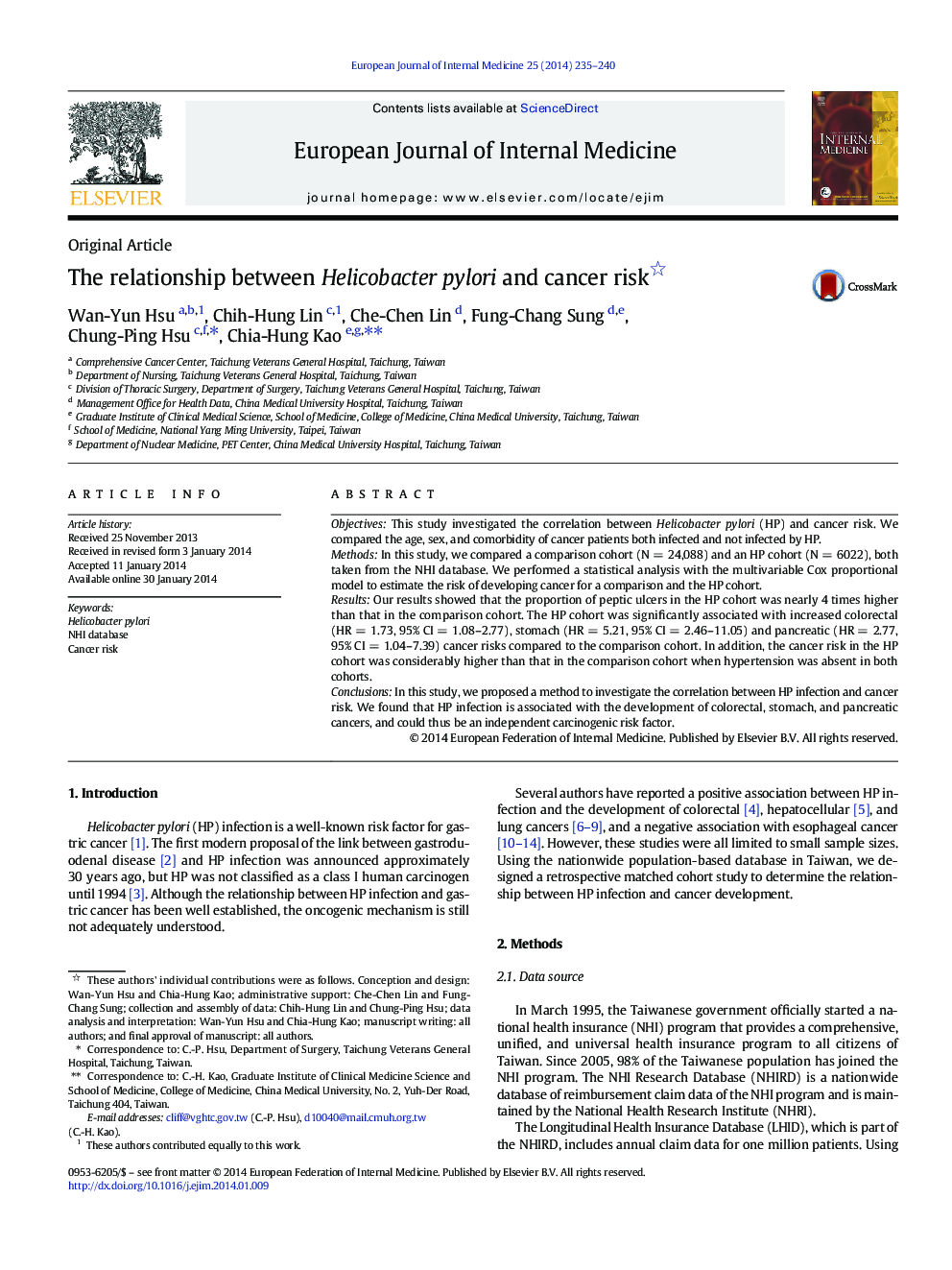| Article ID | Journal | Published Year | Pages | File Type |
|---|---|---|---|---|
| 3466711 | European Journal of Internal Medicine | 2014 | 6 Pages |
•Peptic ulcers in the HP cohort were 4 times higher than those in the comparison cohort.•HP cohort was associated with increased colorectal, stomach, and pancreatic cancer risks.•The cancer risk was higher when hypertension was absent in both cohorts.
ObjectivesThis study investigated the correlation between Helicobacter pylori (HP) and cancer risk. We compared the age, sex, and comorbidity of cancer patients both infected and not infected by HP.MethodsIn this study, we compared a comparison cohort (N = 24,088) and an HP cohort (N = 6022), both taken from the NHI database. We performed a statistical analysis with the multivariable Cox proportional model to estimate the risk of developing cancer for a comparison and the HP cohort.ResultsOur results showed that the proportion of peptic ulcers in the HP cohort was nearly 4 times higher than that in the comparison cohort. The HP cohort was significantly associated with increased colorectal (HR = 1.73, 95% CI = 1.08–2.77), stomach (HR = 5.21, 95% CI = 2.46–11.05) and pancreatic (HR = 2.77, 95% CI = 1.04–7.39) cancer risks compared to the comparison cohort. In addition, the cancer risk in the HP cohort was considerably higher than that in the comparison cohort when hypertension was absent in both cohorts.ConclusionsIn this study, we proposed a method to investigate the correlation between HP infection and cancer risk. We found that HP infection is associated with the development of colorectal, stomach, and pancreatic cancers, and could thus be an independent carcinogenic risk factor.
